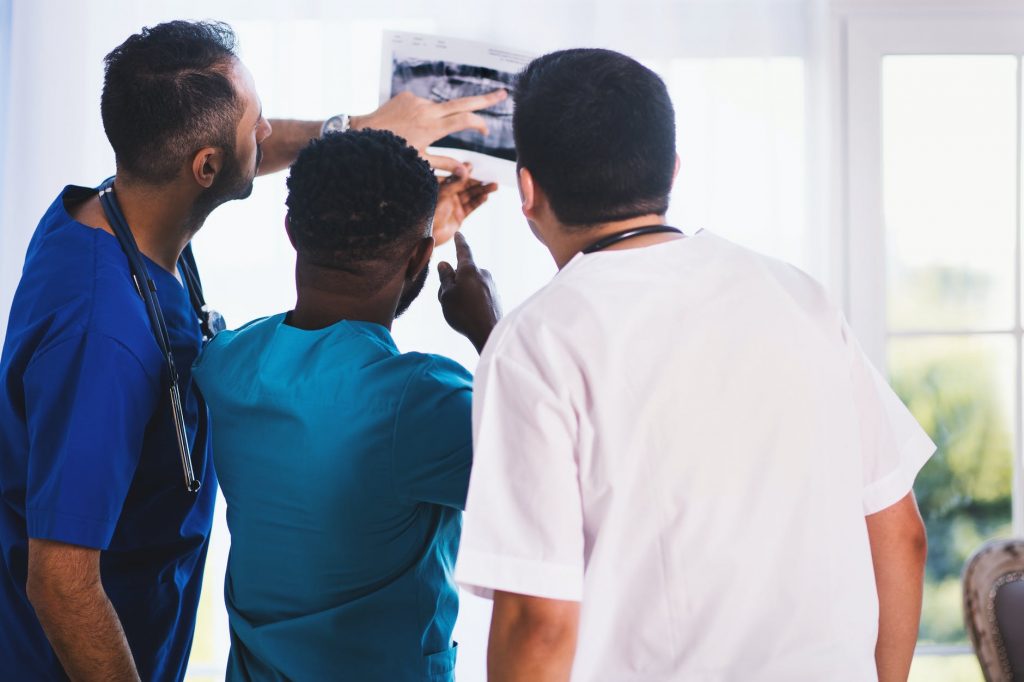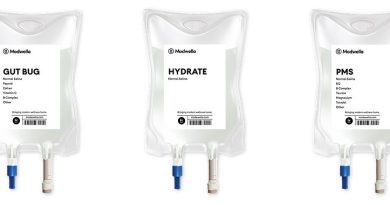How AI is transforming the healthcare industry
The world has drastically changed and rapidly advanced due to technological improvements in the last couple of decades. Healthcare is no exception to this. Indeed, the industry has seen a remarkable swing towards reliance on technology to function. With the new introduction of AI (Artificial Intelligence) into other important areas of life and the benefit it can be seen to be giving to many it is no wonder that the technology is being adopted into healthcare around the world. Despite some having ethical and moral doubt over AI in general, it has huge potential in all areas of healthcare from research to training to diagnosis to treatment. We will look at not only how AI has positively influenced and transformed the healthcare industry to date, but also how these changes can be made more widespread. We will also look at how AI can continue to change healthcare in the future.
Contents [hide]
Training and Research
Like many other fields AI is becoming increasingly dependable and prominent in the healthcare industry. This is apparent from the very roots of the industry. Artificial Intelligence is making it much more effective to train medical personnel. The technology provides a more in-depth and challenging natural simulation which better equips the trainee for real life scenarios. AI, databases and speech can work alongside its ability to register personalized training to individuals to equip medical professionals with much better teaching than they would have received previously. Likewise, the research side of the healthcare industry can be greatly enhanced with the implementation of widespread AI. Research in healthcare is a long process, but by utilizing this technology drug companies can assure quicker and cheaper routes to clinical drugs which can be presented to the public. This proves valuable to all parties as it means quicker drug discoveries for affected people and less painless procedures for companies pursuing solutions. Additionally, preventative measures such as algorithms to categories people and identify issues they may be likely to run into (for example being pre-diabetic or at risk of heart issues) can be achieved on a mass scale much easier using AI and its incredible way of analyzing and managing data – in turn allowing for the healthcare industry to research daily habits and lifestyle choices easily. This allows people to avoid doctors and hospitals by keeping them healthy and fit before the problem starts to occur.
Diagnosis, pre-diagnosis, early detection
Allowing doctors and nurses to receive accurate information quickly AI can be used to develop pre-diagnosis’ and can also help to diagnose diseases more efficiently and successfully than humans may have been able to previously. The wealth of knowledge Artificial Intelligence has access to, means it can function to crunch data and information from journals to case studies which leads to accurately assisting human beings in their diagnosis of illnesses. Perhaps the field that this is currently most prominent in is radiology, where AI can be useful in analyzing scans and identifying possible areas of concern much quicker, and with less chance of error than any human ever could. Perhaps the field that this is currently most prominent in is radiology, where AI can be useful in analyzing scans and identifying possible areas of concern much quicker, and with less chance of error than any human ever could. Especially with modern diagnostic equipment such as x-ray machines and a PACS system that allow multiple images to be taken at once instantly. This allows healthcare professionals to hone in on specific areas to assess irregularities and opens up their time and expertise to other tasks. An ability to rely on AI within healthcare is only bound to increase as AI becomes more and more intelligent and reliable. Its vast depth of information and ability to analyze easily allows for earlier detection, a more reliable diagnosis and sometimes even the mitigation of human error. This decision making can benefit the healthcare industry when functioning at full flow, but can also aid remote or stretched healthcare facilities whilst also operating in out-of-hours times allowing constant healthcare. By freeing up time and providing a helping hand, AI will help improve duty of care amongst healthcare professionals and ease the stress that they are under in a currently very waning industry.
Treatment
Beyond diagnosis and disease prevention lies actual treatment, surgery and care for people. In a very stretched NHS this can be noted as becoming less and less efficient for the people the healthcare industry is looking to serve. AI can tailor treatment to individual needs and analyze exactly what individuals require for their recovery. This can provide assistance to doctors and nurses in disease management and help provide more comprehensive care plans than we already see. Robots have increasingly been used in the healthcare industry for decades from computers for admin to highly technical surgical machines, AI is yet another step to enhance medics in providing more complete healthcare. This is only going to become more necessary as ageing populations alongside economic decline, drive the healthcare industry and NHS to breaking point. Whilst AI can be initially expensive to start up the development of ai in the nhs would be revolutionary. Cutting waiting queues both for long term operations and in A+E, increasing primary care and improving intensive care or surgery whilst also retaining the ability to provide quality end of life care to individuals who may not receive it otherwise, AI seems like it can only help the healthcare industry. It is a fast, efficient and reliable partner to doctors, which can easily aid the medical professionals and ultimately do the laborious work for them.
Conclusion
Of course, there are ethical dilemmas and, probably rightful, skepticism towards the introduction of AI to the healthcare industry. Many have fears over the impact non-human procedures would potentially have on vulnerable people. These are justified but not evidenced. Contrary to this, it seems AI would loosen a load of work from data management and administration of documents to diagnosing and surgically removing cancer, from the medical staff. Ultimately allowing for a more efficient and pleasurable experience for all those seeking the help of the healthcare industry. As it continually proves to be beneficial for those using AI in healthcare, you can only foresee that it will continually grow in popularity and become commonplace in hospitals around the globe. We have barely even scratched the surface of the seemingly limitless positive possibilities it can offer. So if it helps those in need, then why not?





